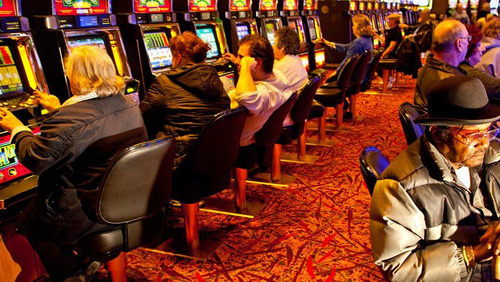The debate on whether to allow a proposed competitive process in constructing Connecticut’s first casino on non-tribal land will go ahead, and MGM Resorts can thank Democratic State Rep. Jeffrey Berger for the last-minute Senate maneuvering.
 On Thursday, the Connecticut legislature voted 18-6 in favor of holding public hearings on the proposal seeking a competitive bidding process for a commercial casino in the state despite objections from the co-chairman of the General Assembly’s Public Safety Committee, the Hartford Courant reported.
On Thursday, the Connecticut legislature voted 18-6 in favor of holding public hearings on the proposal seeking a competitive bidding process for a commercial casino in the state despite objections from the co-chairman of the General Assembly’s Public Safety Committee, the Hartford Courant reported.
No one expected any of the three legislative proposals for casino expansion to move forward in the committee, especially after Sen. Tim Larson, D-East Hartford, and Sen. Tony Guglielmo, R-Stafford, rejected calls to place the casino expansion bills on the agenda.
In a last ditch effort to save the casino expansion bill, Berger mustered significant support from the committee members and pushed for a hearing on the competitive bidding bill.
“The process here is important, and the process here is that there are many members certainly in the House—not sure how it falls in the Senate—but certainly many members and colleagues both as Democrats and Republicans in the House are very concerned about having an open, public discussion on a proposal for commercial gaming,” Berger said, according to the news outlet.
Larson, who voted against the public hearings, reminded his colleagues that the Mashantucket Pequot and Mohegan tribes, operators of Foxwoods Resort Casino and Mohegan Sun, had been strong partners of Connecticut as they contribute $7 billion to state coffers.
The committee co-chair then took a swipe at MGM for coming into Connecticut “with a one-trick pony and promise everyone the moon and the fence around it.”
Other legislators who voted against the public hearing said that it wasn’t the right time to talk about casino expansion since they don’t have the luxury of time to hold legislative sessions.
Rep. Joe Verrengia, D-West Hartford, the third co-chairman of the committee who long favored an open casino competition, pointed out that time shouldn’t matter, especially when the issue could greatly impact the state of Connecticut. Verrengia also stressed that holding public hearings isn’t an assurance that the bill will become law.